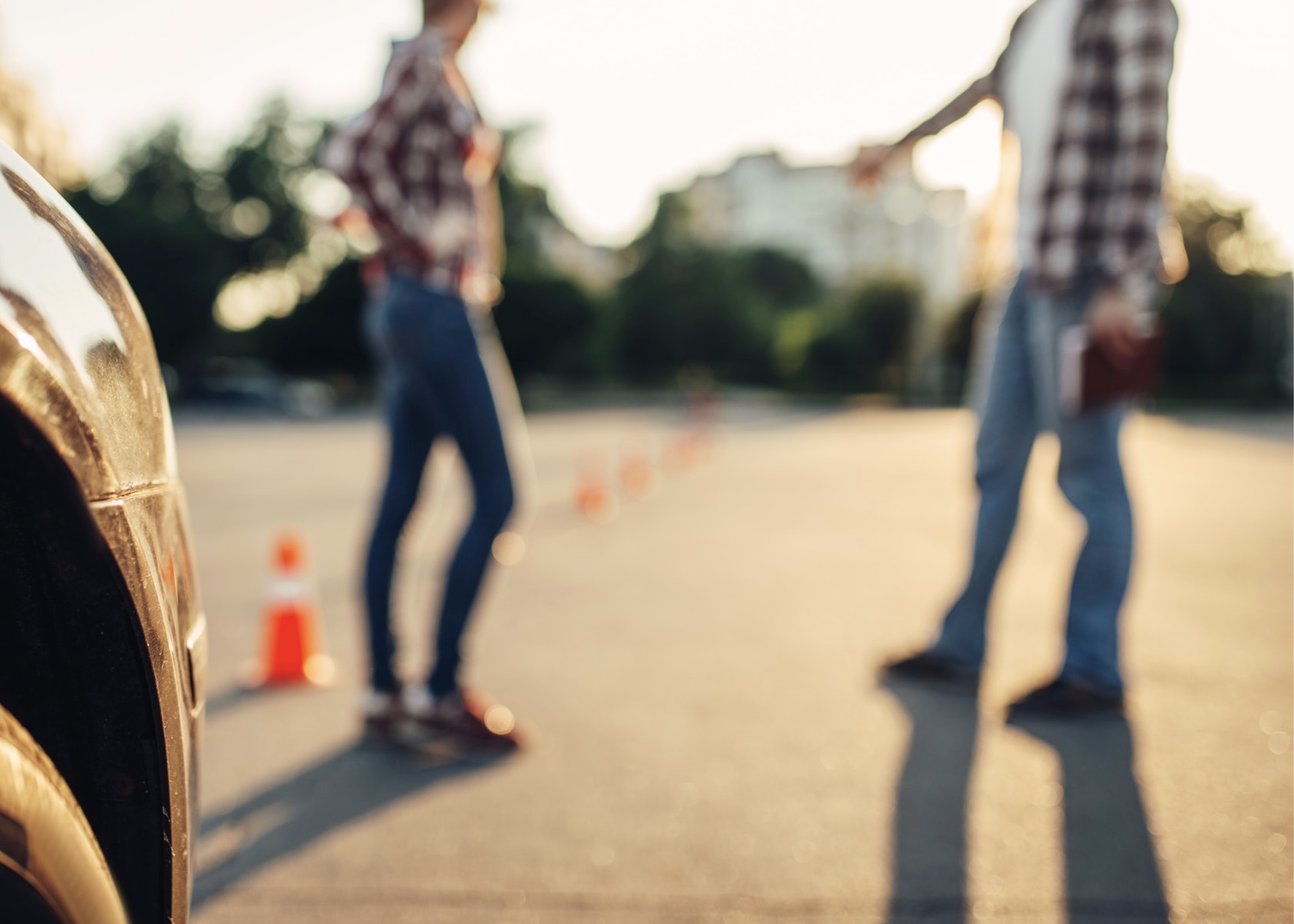The Deadliest Drivers of All

Table of Contents
Sixteen-year-old drivers are the riskiest, an exclusive database report shows. The solution, say some states: Take away the car keys at night, outlaw carloads of youths and demand a long, supervised learning curve.
By Mary Beth Pfeiffer
If Tiffany Accardi had lived in New Jersey or New York City or France, she might still be alive today. Sixteen-year-olds cannot drive in those places. When the gregarious high school junior and aspiring marine biologist crashed her red Pontiac convertible -- doing 90 mph on a Florida interstate -- she killed herself and four others, including her best friend and a 4-year-old in another car. There are thousands of stories like that of Tiffany Accardi, a good student and good kid who hoped to join Greenpeace and save baby seals but instead died behind the wheel in a crash she caused.
As awful as it was, that Labor Day crash likely saved more lives than it took. Because of efforts by Tiffany's family, Florida adopted a law that saw the crash rate among 16-year-olds dip 11% in that state, the most recent figures available. It requires a six-month learning period and bans late-night driving for two years -- a "graduated" approach that limits risks until teens get much-needed experience.
America is revolutionizing how young people are licensed to drive. Twenty-eight states have followed Florida's lead in a wave of teen-licensing legislation that promises to reduce body counts in the next decade in much the same way that driving-while-intoxicated and seat-belt laws did in the last. Safety experts are painfully aware that 14 states still have no graduated safety licensing and the laws passed in 20 others are weak, but they are delighted at the movement. Next in line to consider the laws: Wisconsin, Vermont, the District of Columbia.
"This is probably the most significant change in the standard license in at least 50 years," says Jim Hall, the nation's chief investigator of transit hazards as chairman of the National Transportation Safety Board and a front-line advocate for tough teen licensing. "Our kids are our nation's most precious resource. We're just killing too many of them."
Alcohol is Not The Problem
Teenage vehicle fatalities in the last decade surpass the entire death toll of the Vietnam War and are equal to one Columbine massacre every day. Crashes are the leading killer of teens 15 to 19, responsible for 1 in 3 deaths. While death rates for drivers of all ages declined 20% in recent years, and even dropped for 17-19-year-olds, the rate nearly doubled for 16-year-olds, now the riskiest drivers on the road.
Contrary to myth, the problem with 16-year-old drivers isn't drinking: Those in fatal crashes have alcohol in their systems half as often as 18-year-olds. Rather, it's too little behind-the-wheel experience before licensing -- and too much, too soon afterward.
In America, teens traditionally have been given full driving privileges after minimal or no training, often only six hours behind the wheel in driver ed. "What we do with young drivers violates everything we know about learning," says Patricia Waller, a University of Michigan researcher who has fought for higher licensing standards for 25 years. "I think we've been mindless."
According to a USA WEEKEND study, fatal accidents involving 16-year-old drivers nationwide shows how ill-prepared they are.
- They speed and run off the road the most.
- They are cited for more mistakes than anyone except drivers over 82.
- They carry the most passengers (80% of their passengers are other teens) who wear seat belts less often than older drivers and passengers.
- They crash far more at night and hit trees and poles more often.
- Though new drivers, one in seven of them had a previous accident or ticket.
- Their crash rate was five times higher than drivers over 25.
- "They have the highest crash risk of any age," says Allan Williams of the Insurance Institute for Highway Safety and a top licensing researcher. "It's not a question of whether (the laws) are going to be effective but how effective they are going to be."
The Best Laws Limit Passengers
Although teen crash rates dropped in Florida, even that state's law does not go far enough for many safety experts. The strictest laws don't allow 16-year-old drivers to have teen passengers in the first six months of driving, as in California, and forbid them to drive after 9 p.m., as in North Carolina. Even better, experts say, are laws that also mandate up to 50 hours practice with a driver 21 or older before a road test, as in Michigan, and require a conviction-free record for a year to obtain full driving privileges, as in Pennsylvania.
Only New Jersey postpones licensing until 17, an option few consider practical in car-dependent America: "We've accepted the fact that our standard of living has put us in a position where kids are driving at young ages," says Mark Edwards, AAA's traffic-safety director. "We're less concerned about how old they are than how prepared they are."
It's still a tough sell. In Kansas, the Farm Bureau fought a proposal to limit 14-year-olds driving unsupervised and at night to perform farm work. (A handful of states allow 14- and 15-year-olds to drive.) In Michigan and Wisconsin, legislators feared the restrictions would give police excuses to stop young minority drivers, while legislators elsewhere say such provisions crimp personal freedom. Says Rep. John Morroni, who voted against Florida's law because of the night restrictions: "This smells like Big Brother."
Parents Underestimate Risks
Often, parents are vocal opponents. They may be tired of chauffeur duty or they may face serious conflicts with work schedules, their teens' after-school jobs, or the distances involved in rural life. Often, parents are unaware of the risks of driving and the limits of driver education. Research says driver ed doesn't reduce crash rates; it must be boosted with many hours of practice over a long period of time.
Tiffany Accardi's parents say they didn't realize this. "I thought she was as prepared as she could be to drive a car," says her mother, Billie Lomonaco. On the rainy day Tiffany got her license, she drove two hours to Busch Gardens with three friends and "I didn't think anything of that," says Lomonaco. That was 48 days before Tiffany died.
Tiffany's parents and aunt, Diane Zeidwig, changed Florida's licensing law through a small grass-roots group and a lot of luck. Nonetheless, they heard harsh complaints from parents: "You're going to make it harder for me," Zeidwig says they told her, asserting that night-driving limits would hamper work and social activities. But surveys by the Insurance Institute and AAA, which has lobbied legislators hard, found overwhelming parental and public support, in Florida and elsewhere.
"As a parent, I love the law," says Mary Jamison of Raleigh, N.C., whose daughter, Kristi, 16, took her road test after holding a permit for a year. Particularly endearing to this mom: "If they get caught driving at night, they go back to the beginning" with six more months of restriction. That empowers parents.
It also saves lives: "The key to graduated licensing lies in the night-driving restriction," says teen-driving researcher David Preusser, whose studies have found nighttime crash reductions of 25-69%.
What convinces legislators? For Florida's Earl Ziebarth, who sponsored Tiffany's law: "Statistics." For Dan Gustafson of Michigan, it was the triple fatal accident involving the son of a doctor who delivered Gustafson's son six days earlier. For Debbie Clary of North Carolina, it was the local high school that hadn't had a full graduating class in a decade because of auto crashes. For Colorado legislators, it was the crash last October that killed four teens on the very day the 16-year-old driver got his license.
If Wisconsin legislators act, it would be one of a half-dozen states to sharply limit passengers of new drivers. Such a provision would have reduced the toll in the Tiffany Accardi car, in which only one of four teenagers survived. Kacey Jo Lipari did not. "She would have been 21," says her father, Frank. "I have to go to the cemetery to see her."
So do Tiffany's parents. But because of Florida's law, says her mother, "A thousand teenagers and their families didn't go through this."
Fatal Mistakes
- USA WEEKEND analyzed electronic records of 37,280 fatal crashes in recent years.
- The crash rate is 5 times higher for 16-year-old drivers than over-25 drivers.
- 16-year-old drivers drive 0.5% of vehicle miles nationwide and were 2.1% of all drivers in fatal accidents. This accounted for 3.4% of all fatalities
- 16-year-old drivers in fatal crashes who had a previous serious ticket or accident: 14%
Death Toll
16-year-old drivers killed 1,410 people in crashes. Who they were:
- 16-year-old drivers: 494
- their passengers: 485
- all others: 431
About this study: USA WEEKEND analyzed electronic records of 37,280 fatal crashes nationwide. They involved 56,978 drivers, including 1,212 who were 16 years old, and resulted in 41,967 fatalities. The data is compiled by the National Highway Traffic Safety Administration, part of the U.S. Department of Transportation.
The Myths
"Alcohol is a major cause of crashes involving the youngest drivers."
Only a tenth of 16-year-old drivers in fatal crashes had alcohol in their systems, half the rate of drivers over 25. Inexperience and poor judgment play a far greater role in new-driver crashes.
"My child is a better driver because she has taken driver ed."
An analysis of nine studies on driver education, published in The American Journal of Preventive Medicine, found "no convincing evidence that high school driver education reduces motor vehicle crash-involvement rates."
"My child is responsible and a good student. He will be a good driver."
Driving is a complex psychomotor task that requires painstaking development, just as tennis or playing the piano does. Experience and practice is vital.
"The biggest threat to teens is substance abuse."
Motor-vehicle crashes are the No. 1 killer of teens, accounting for 36% of deaths of people 15 to 19, and 41% of deaths of 16-year-olds in a recent study.
Tips for Parents of Young Drivers
- Let them drive often with you.
- Don't give 16-year-olds a car for a year.
- Limit passengers and night driving even if your state doesn't.
- Negotiate a contract of acceptable behavior.
- Set good examples; use seat belts.
Mary Beth Pfeiffer is projects editor for the Poughkeepsie (N.Y.) Journal.
This article was underwritten by a grant from the Henry J. Kaiser Family Foundation for Health.
